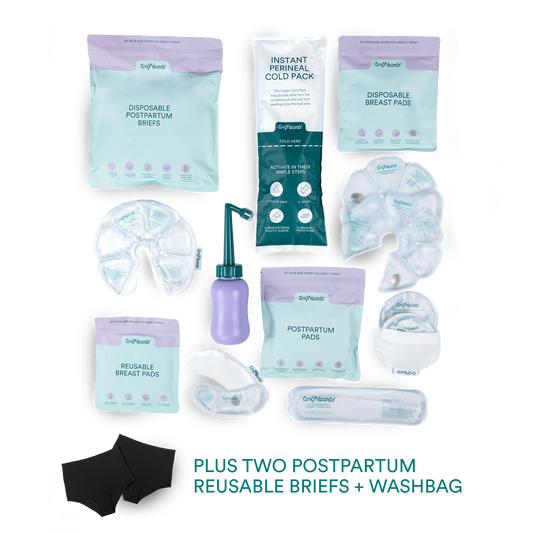Brr, it’s cold in here! While Winter may be coming to a close soon, now is the peak time for families to hit the alpine slopes for a bit of family fun in the snow. The snow can be a wonderful place for children, but it also presents unique hazards that most families and children aren’t accustomed to in everyday life.
The most common injuries that occur at the snow are falls and collisions with other people or objects like trees. While us as parents can usually bear the brunt of a fall - our little ones need extra protection.

So, to help you prepare for your alpine getaway, we consulted our friends over at Kidsafe Victoria, and they have advised that all parents should exercise these safety tips when at the snow:
- Ensure that your bub is dressed adequately for the cold and wet weather.
- Protect your child’s skin and eyes - despite it being cold there is still a risk of sunburn, even on cold and overcast days.
- If your child is going to take up skiing or snowboarding - make sure they learn the basics from a qualified instructor. This will ensure they know all the rules and safety measures - and they won’t pick up any bad habits. Most alpine resorts have classes specialised for children.
- Match your child’s level of experience to the activity they are going to undertake. Snow sports aren’t for everyone.
- NEVER carry your baby in a sling or carrier if you are skiing or snowboarding.
- Along with adequate clothing, make sure they are wearing appropriate and correctly fitted safety gear. Helmets are a must!
- Ensure your child is supervised at all times on the mountainHave a name tag with your child’s name, your ski lodge or home address and best contact in a visible place to help Ski Patrol in case your child gets lost or becomes injured.
- It’s important to remember that accidents may still happen at the snow, and they can often be out of your control. To ensure that you’re adequately prepared for any bump or tumble on the snowfields, make sure your paediatric first aid training is up-to-date as it may take a little while for medical help to arrive on the scene.
The Tiny Hearts First Aid course covers everything you need to know about broken bones, bleeding, pain relief and more! Having this knowledge will give you peace of mind if your little one or you were to get injured on your trip away. Click here to book now.







